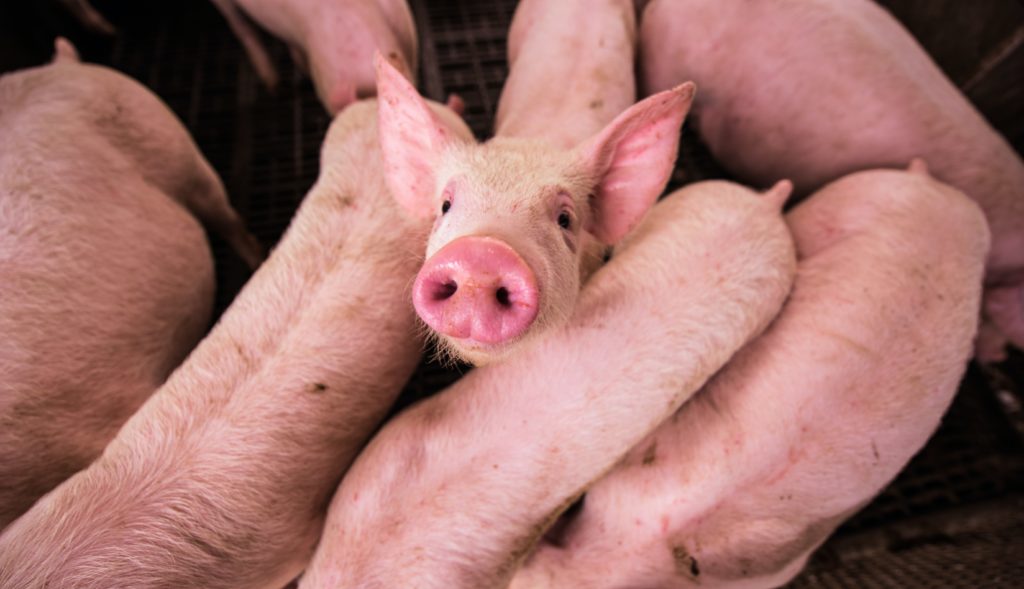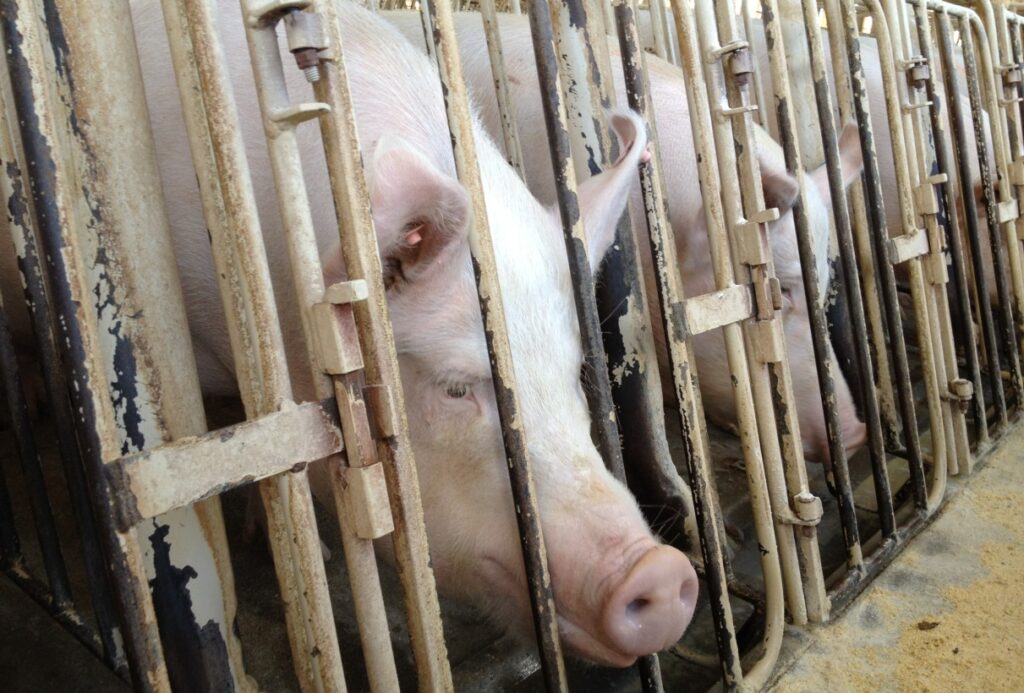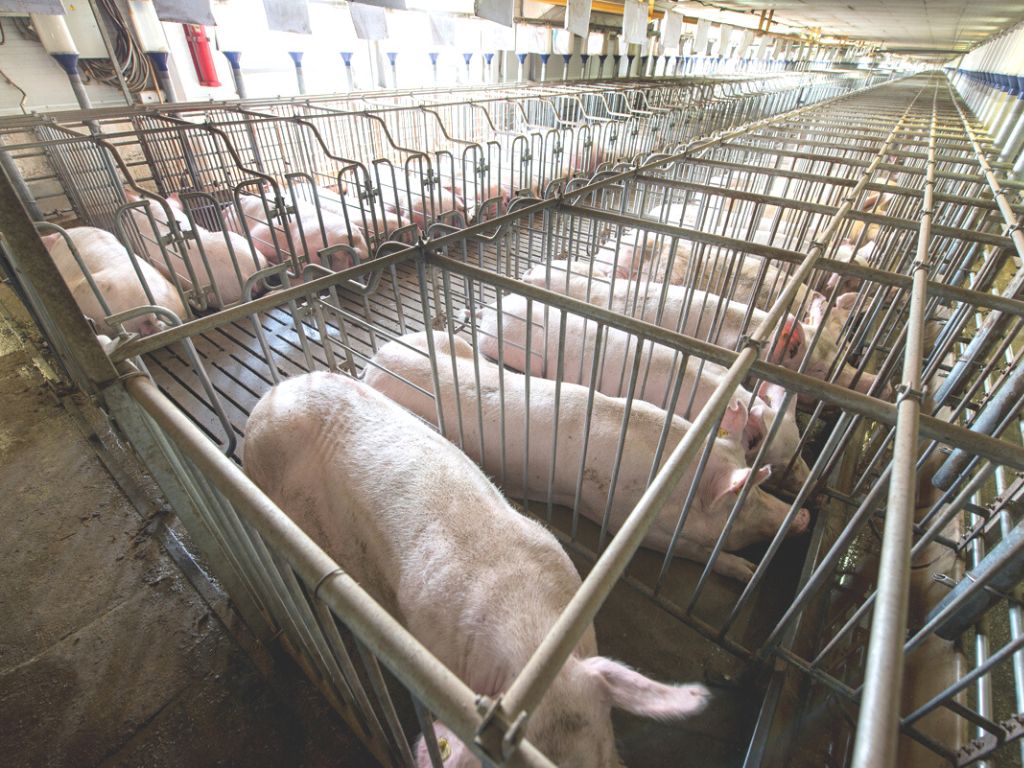3 Mins Read
Expected to be eliminated before the end of next year, Compass Group, the world’s largest food service provider, says it will phase out the use of gestation crates for pigs in its U.S. supply chain.
Compass Group says it is aiming to eliminate gestation crates by the end of next summer in what’s being hailed as one of the strongest animal welfare policies in the food sector. The announcement follows an aggressive campaign by the animal rights group Animal Equality.
The group launched the campaign after Compass pledged to end gestation crates in 2012. Despite the pledge, the company failed to move forward with implementing the shift, reducing the use of gestation crates by just ten percent. It later deleted the policy from its website, Animal Equality said. The organization targeted Compass as well as its high-profile clients including Google, Nike, Boeing, and Bloomberg. Compass announced its commitment shortly after the campaign launched.

“With this new commitment, Animal Equality recognizes and appreciates Compass Group’s progress in making meaningful improvements for animals in its supply chain, which will impact the lives of hens, chickens, mother pigs, and fish. We will continue to ensure that policies and deadlines are rigorously met. Animal Equality will never stop working and campaigning until all forms of extreme abuse towards farmed animals are part of the past,” Sharon Núñez, Animal Equality’s President, said in a statement.
“Our team and our supporters worked tirelessly to hold Compass Group accountable for the sake of mother pigs. This is one of the biggest campaigns won by Animal Equality and it shows just how influential our voices can be to help protect animals suffering for their meat,” says Dane Charbeneau, Animal Equality Campaigns Manager.
Gestation crate use
Ten U.S. states have gestation crate bans in place: Arizona, California, Colorado, Florida, Maine, Massachusetts, Michigan, Ohio, Oregon, and Rhode Island. Gestation crates confine pregnant and nursing sows to a 7-foot-by-2-foot space that’s barely larger than their bodies; activists and animal welfare experts say the practice is one of the cruelest in animal agriculture. More than six million pigs are confined to these crates every year in the U.S. Research has shown pigs are as intelligent as dogs.
“Studies have found they’re smarter than dogs and even 3-year-old children,” HSUS says on its website. “In the wild, pigs form small groups that typically include a few sows and their piglets. Mother pigs and their babies stay close until the piglets mature; they even prefer to sleep snout-to-snout or snuggled up together.”
The news comes as Smithfield, the world’s third-largest pork producer, will face a lawsuit filed by the Humane Society of the U.S. over gestation crate confinement. The animal rights organization filed the suit last year, stating that Smithfield was deceiving customers about its practices by using false and misleading marketing claims. Smithfield’s motion to dismiss the case was denied last week by the District of Columbia Superior Court’s Judge Yvonne Williams.

“The court agreed with us that Smithfield’s various statements about eliminating the use of such crates, and about our praise for its earlier promises ‘could mislead a reasonable consumer to believe that [Smithfield] no longer uses [gestation] crates during the breeding process which it admittedly still does,’” HSUS said in a blog post.
Smithfield announced in 2018 that it had eliminated gestation crates from all of its owned farms, but those from its supplier partners were still in use. It says it currently uses “individual stalls for breeding to help ensure a sow’s successful conception, a practice supported by multiple scientific studies” and denies any wrongdoing.
“Smithfield is steadfastly committed to the safety, health and comfort of its animals,” the pork producer said in a statement. “Contrary to HSUS allegations, Smithfield has been transparent with the public about its implementation of group housing.”
Lead image courtesy of Unsplash.




